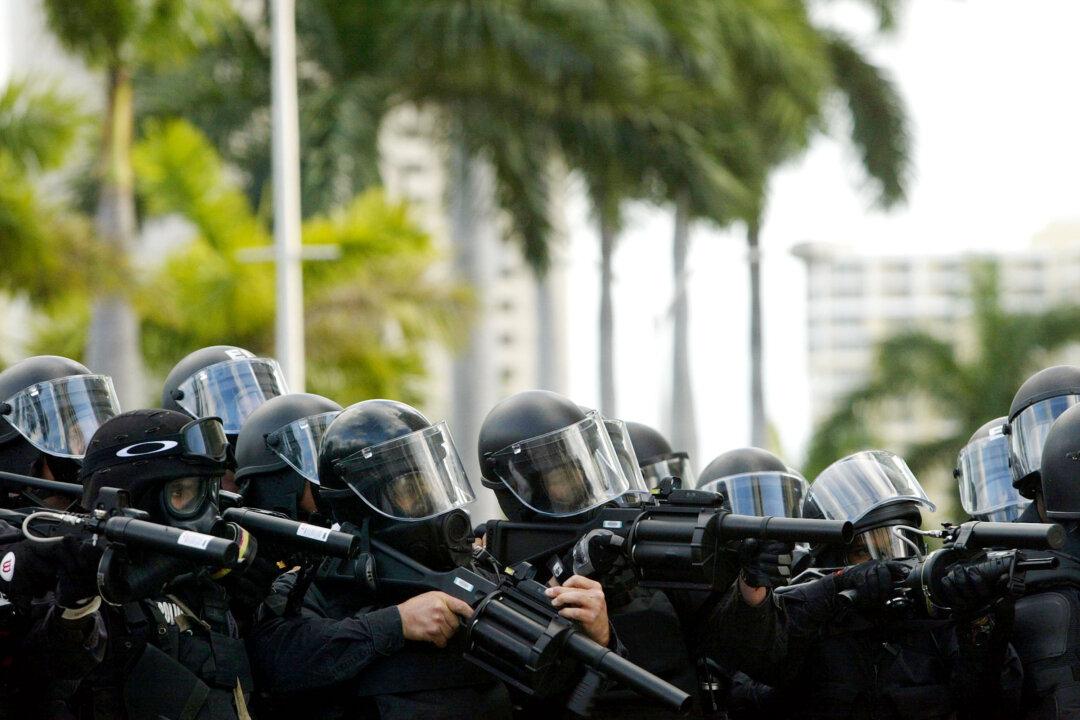A U.S. appeals court has backed the state of Florida on a law that expanded the definition of a riot, ruling that a lower court that interpreted the law as potentially applying to peaceful protesters was wrong.
The law says that a person riots if he or she “willfully participates in a violent public disturbance involving an assembly of three or more persons, acting with a common intent to assist each other in violent and disorderly conduct” that results in injury to another person, damage to property, or imminent danger of either.





